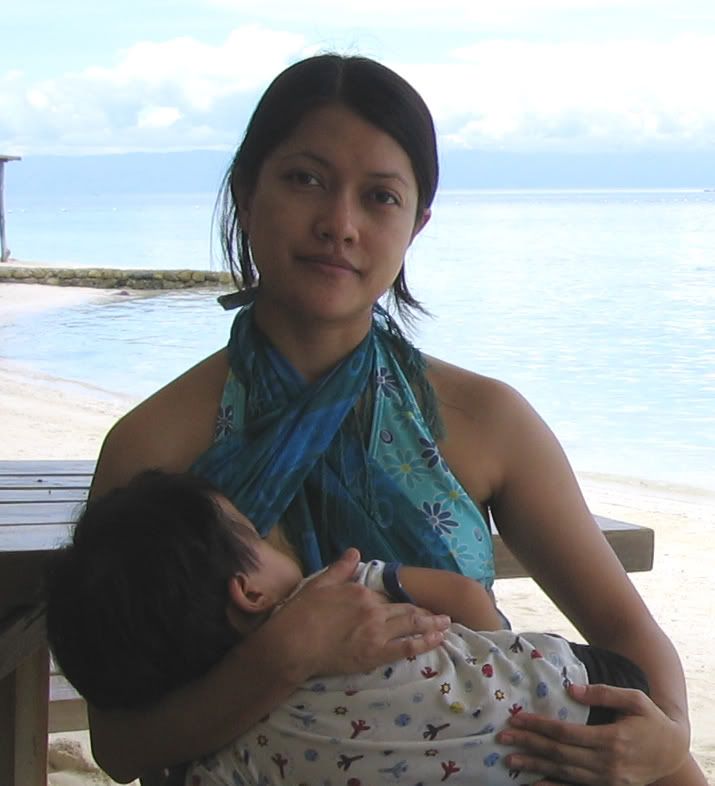You can read Dr. Silvestre's paper by downloading it here:
Dr. Silvestre says that, according to evidence, "what occurs in breastfeeding is not just a mere transfer of nutrients and antibodies but a complex relaying of immunologic memory and interaction." She further gives evidence for the following recommended practices:
Why early latching on:
- Colostrum colonizes the newborn's digestive system with good bacteria, which protects against infection
Why exclusive breastfeeding:
- Even small amounts of infant formula or solids disturbs the optimal colonization of a newborn's intestines
- Each mother produces breastmilk with antibodies against bacteria in her environment. Therefore, baby is protected from disease-causing bacteria to which it is exposed. Infant formula cannot do this. "Breastfeeding works its wonders even in the harshest, dirtiest, most economically deprived of environments," Dr. Silvestre says.
Why exclusive breastfeeding for six months and up to two years or beyond:
- Because breastfeeding continues to protect children from infections and death due to infections long after the first year of life.
- In a two-year study of 9,942 children in Cebu City, children who were not breastfed in the first six months of life had an 8- to 10-fold higher risk of dying from diarrhoea. According to the WHO Collaborative Study Team on the Role of Breastfeeding on the Prevention of Infant Mortality, babies who were not breastfed have a six-fold greater risk of dying from infection in the first two months of life.
- As published in The Lancet, the Bellagio Child Survival Study Group estimates that exclusive breastfeeding for six months can reduce underfive deaths by 13%.
Dr. Silvestre concludes, "indisputably, breastfeeding is the single most cost-effective intervention for saving child lives."
